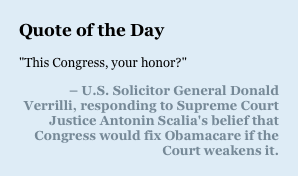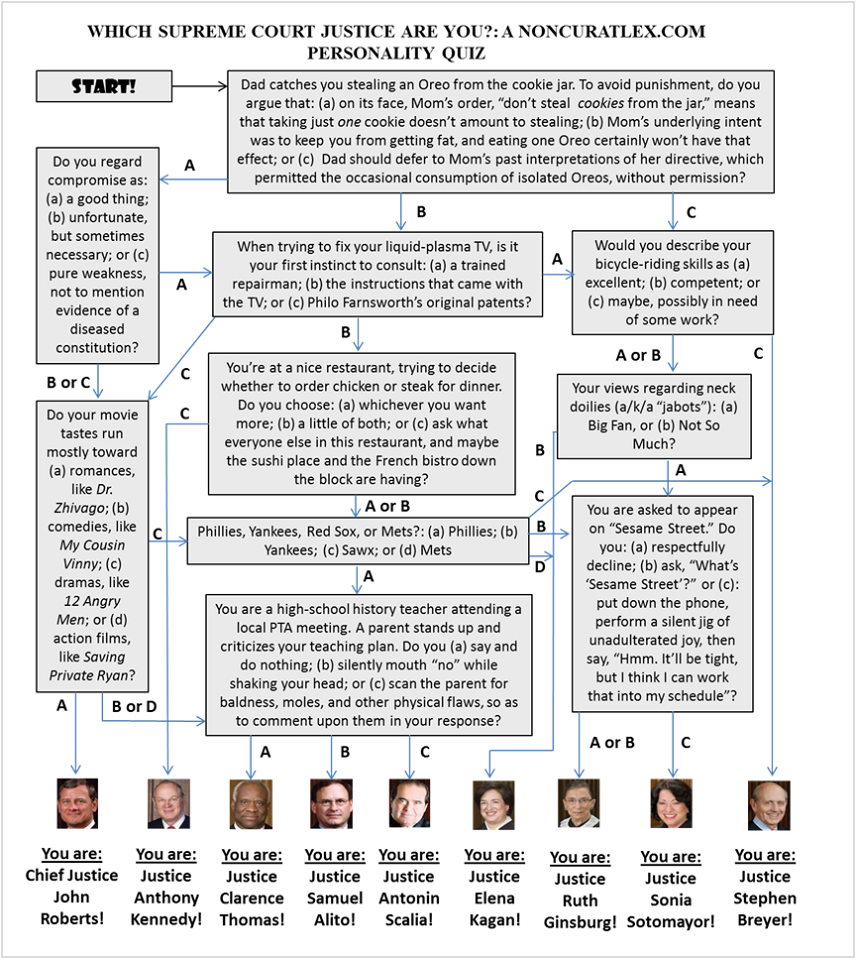 Yes, the U.S. Supreme Court once considered the question of whether a state government could prohibit the importation of solid or liquid waste from across state lines, and concluded that no, it cannot. (I may have exaggerated a little in my title when I implied that the case was just about “poop,” but you’re reading now, aren’t you?) I came across this fun decision during a work-related Googling. It is amazing the things you find.
Yes, the U.S. Supreme Court once considered the question of whether a state government could prohibit the importation of solid or liquid waste from across state lines, and concluded that no, it cannot. (I may have exaggerated a little in my title when I implied that the case was just about “poop,” but you’re reading now, aren’t you?) I came across this fun decision during a work-related Googling. It is amazing the things you find.
Anyway, Philadelphia v. New Jersey, 437 U.S. 617 (1978), caught my eye, because why would the city of Philadelphia be suing the state of New Jersey? In the 1970’s of all times? It turns out that New Jersey had a law that “prohibit[ed] the importation of most solid of liquid waste which originated or was collected outside the territorial limits of the State…” Id. at 618. Quite a few private landfills in New Jersey and cities outside of New Jersey had business arrangements, in which those cities shipped their trash to New Jersey. I’m lazy, so just make your own New Jersey jokes here. I’ll wait.
Those private landfills and non-Jersey cities were not too happy. The landfills didn’t like losing business, and the cities didn’t like not being able to ship their effluvia to New Jersey (I’m paraphrasing Justice Stewart’s recitation of the facts, but I imagine the mayor of Philadelphia raging about not understanding the point of being so close to New Jersey if you can’t dump your crap there. Al Pacino is playing the role of the mayor in my imagination. It’s some awesome scenery-chewing.) So they sued the state of New Jersey for violating the Commerce Clause of the Constitution.
Typically, when you hear the term “states’ rights,” you either think of segregation or the Tenth Amendment. More jurisprudence related to what states can and cannot do, or what the federal government can or cannot make states do, derives from the Commerce Clause and other provisions nearby. In this situation, rather than a federal government that, depending on how you look at it, was either the source of or the last bastion against tyranny, private businesses were suing their own state, and municipal governments were suing a foreign (i.e. different) state. It doesn’t quite fit the standard “states’ rights” rhetorical model, but it does bring up a good question: does a state government, ostensibly of, by, and for its people, have the right to keep other people’s garbage out?
Short answer, no. If you’ve read this far but would really rather be off elsewhere eating a Hot Pocket, you may go now. Continue reading →
!["SCOTUS Marriage Equality 2015 (Obergefell v. Hodges) - 26 June 2015" by Ted Eytan from Washington, DC, USA (SCOTUS Marriage Equality 2015 58151) [CC BY-SA 2.0 (http://creativecommons.org/licenses/by-sa/2.0)], via Wikimedia Commons "SCOTUS Marriage Equality 2015 (Obergefell v. Hodges) - 26 June 2015" by Ted Eytan from Washington, DC, USA (SCOTUS Marriage Equality 2015 58151) [CC BY-SA 2.0 (http://creativecommons.org/licenses/by-sa/2.0)], via Wikimedia Commons](http://crypticphilosopher.com/wp-content/uploads/2015/07/SCOTUS_Marriage_Equality_2015_Obergefell_v._Hodges_-_26_June_2015.jpg)



![klsgfx [Public domain, CC0 1.0 (http://creativecommons.org/publicdomain/zero/1.0/)], via Openclipart klsgfx [Public domain, CC0 1.0 (http://creativecommons.org/publicdomain/zero/1.0/)], via Openclipart](http://crypticphilosopher.com/wp-content/uploads/2014/04/klsgfx_Helicopter.png)
!["Corporate PAC Campaign Contributions Have Tripled Over the Last Two Decades" by citizens4taxjustice [CC BY 2.0 (https://creativecommons.org/licenses/by/2.0/)], via Flickr "Corporate PAC Campaign Contributions Have Tripled Over the Last Two Decades" by citizens4taxjustice [CC BY 2.0 (https://creativecommons.org/licenses/by/2.0/)], via Flickr](http://crypticphilosopher.com/wp-content/uploads/2014/04/7074471287_34e8617198_z-300x229.jpg) I haven’t read the actual
I haven’t read the actual 
![By pvsbond (TBS Analyst David Wells) [CC-BY-SA-2.0 (http://creativecommons.org/licenses/by-sa/2.0)], via Wikimedia Commons We even have the same hairdo.](http://crypticphilosopher.com/wp-content/uploads/2013/05/800px-TBS_Analyst_David_Wells.jpg)
 Yes, the U.S. Supreme Court once considered the question of whether a state government could prohibit the importation of solid or liquid waste from across state lines, and concluded that no, it cannot. (I may have exaggerated a little in my title when I implied that the case was just about “poop,” but you’re reading now, aren’t you?) I came across this fun decision during a work-related Googling. It is amazing the things you find.
Yes, the U.S. Supreme Court once considered the question of whether a state government could prohibit the importation of solid or liquid waste from across state lines, and concluded that no, it cannot. (I may have exaggerated a little in my title when I implied that the case was just about “poop,” but you’re reading now, aren’t you?) I came across this fun decision during a work-related Googling. It is amazing the things you find.